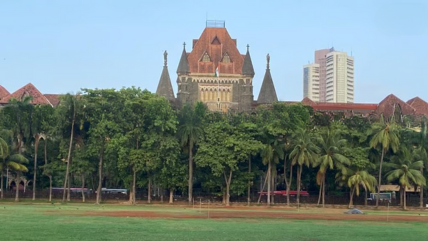“Bombay High Court Frustrated with Serious Lapses in Police Investigations of Crimes Against Women”
The Bombay High Court on Wednesday expressed deep frustration with the State’s handling of investigations in cases involving crimes against women. Despite assurances from the State through submitted affidavits, the Court highlighted significant deficiencies in the investigative process.
A bench comprising Justice AS Gadkari and Justice Neela Gokhale pointed out numerous failures in these investigations. “We are not here to express pleasure or displeasure, but this is our anguish. We repeatedly encounter such cases and felt it necessary to bring this to the attention of higher authorities,” the bench remarked.
In response, the Court called upon Advocate General Birendra Saraf to address these pressing issues. Justice Gokhale stated, “Mr. AG, Maharashtra is supposed to be one of the most progressive and safest states for the safety of women, but the system needs a shakeup to avoid a collapse.”
The Court scheduled the hearing to address various investigative lapses it had encountered in recent cases. Dissatisfied with affidavits submitted by the Mumbai police and the Additional Chief Secretary of the Home Department, the Court insisted on the presence of the Advocate General.
One case involved the outraging of a woman’s modesty during a family quarrel. The Court criticized the police for failing to preserve vital evidence, including the victim’s torn clothes. The police had claimed they couldn’t preserve the clothing because the victim didn’t have spare clothes to wear at the time. The Court deemed this failure as severe, noting that such crucial evidence cannot be “recreated.”
Though the State reported disciplinary action against the concerned officer, the Court found it insufficient, stating that the damage to the victim’s case was irreversible. It also questioned the Advocate General’s assurances of corrective steps, doubting their effectiveness in preventing prosecution failures. “The first interaction citizens have is with the police. If there’s incompetence, where do they turn?” the bench demanded.
In another case involving outraging modesty in Mumbai, the Court noted that the police failed to preserve material evidence in a timely manner, and the investigation had been conducted by a police constable instead of a senior officer. Although the Advocate General assured that further investigation would be initiated, the Court questioned the evidentiary value of seizing evidence after the charge sheet had already been filed.
In a separate case of stalking and harassment involving a college student, the Court criticized the police for failing to stop the circulation of the victim’s photos online, even after the petition was filed. The bench questioned the Advocate General’s defense of the police commissioner and asked where victims could turn for help given such failures.
Two of the four cases reviewed on Wednesday were later withdrawn by the petitioner, leading to their disposal. However, the Court issued orders granting police protection to a victim in the stalking and harassment case. In another case involving cruelty, where the husband was absconding and currently in Ireland, the Court demanded an affidavit from the Joint Commissioner of Police, asking why no action had been taken against the absconding husband.

















